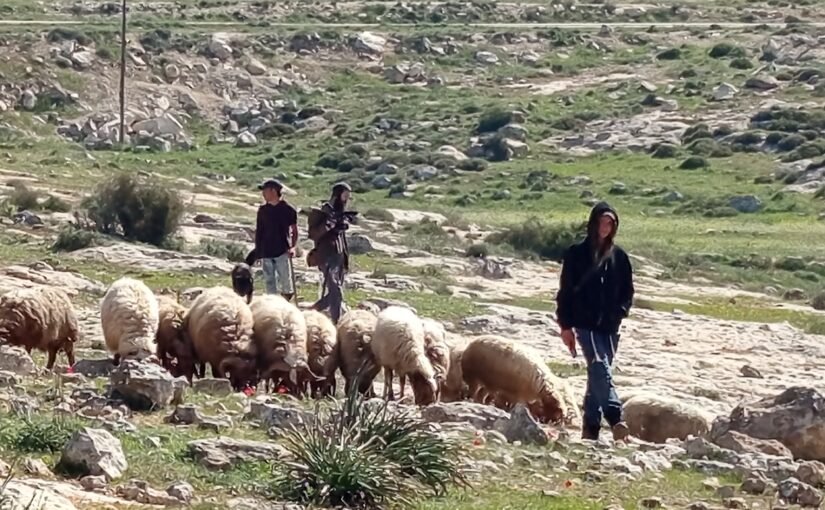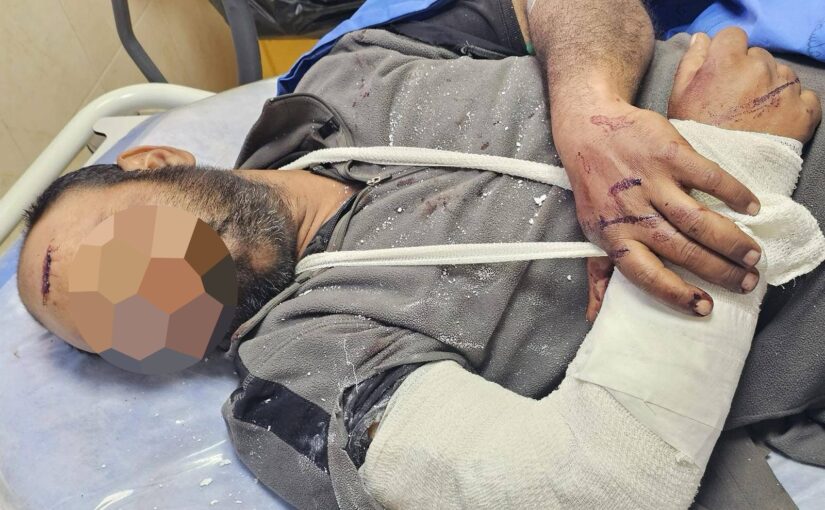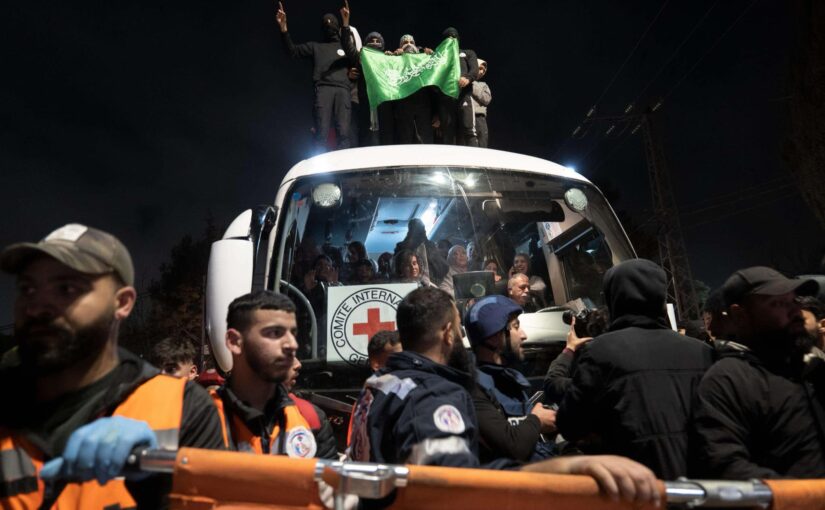Category: Reports
-
Israel’s attacks on refugee camps in the West Bank
By Diana Khwaelid — Northern West Bank — 8th May 2025 The Israeli occupation forces continue their aggression on the city of Tulkarm and its camp for the 102nd consecutive day, and for the 89th day on the Nur Shams camp East of the city with a continuous escalation of raids, inspections, and demolition of…
-

Ethnic cleansing in Masafer Yatta: a focus on Susiya
Susiya, Masafer Yatta In 1986, Israeli Occupation Forces expropriated the land of the Palestinian village of Susiya and expelled the Palestinian residents under the pretext of archaeological remnants of a synagogue, and handed it over to the residents of the illegal Zionist settlement established 3 years previously (the settlement is named “Susya”). In the remaining…
-

Two Palestinian shepherds hospitalized following brutal attack by Israeli settlers in Khirbet Hammamat al-Maleh al-Meetah
On March 11, 2025, at least six Israeli settlers violently attacked two Palestinian shepherds in Khirbet Hammamat al-Maleh al-Meetah in the northern Jordan Valley. The brothers, Ghanem Eid Zawahra and Muhammad Eid Zawahra, were shepherding on Palestinian land when a black settler vehicle approached them. Settlers exited the vehicle and beat the shepherds with iron…
-
What Does Israel Want in The West Bank?
Northern West Bank By Diana Khwaelid Israel is carrying out massive military operations to displace residents of camps in the northern West Bank, unprecedented since the Second Intifada. Since the seventh of October, Israeli attacks on West Bank cities, especially in the north, have not stopped. We are talking about the cities of Jenin, Tulkarm, Tubas,…
-
The Release of Prisoners and the Ceasefire in Gaza
By: Diana Khwaelid21 January 2025 After a year and two months of suffering, displacement and genocide, the ceasefire heralds great joy on the streets of Palestine. But with Israeli forces stepping up aggression in the West Bank, Palestinians fear the war of annihilation has not ended, only moved. Ramallah, West Bank — Celebrations bloomed in…

